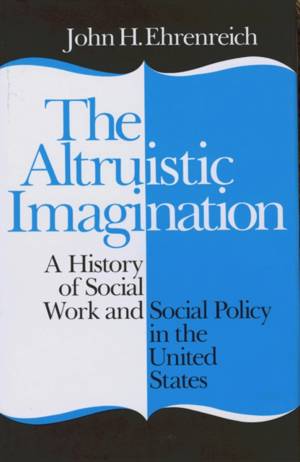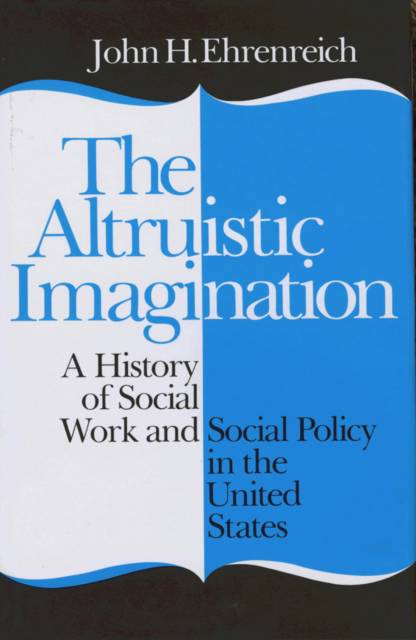
- Retrait gratuit dans votre magasin Club
- 7.000.000 titres dans notre catalogue
- Payer en toute sécurité
- Toujours un magasin près de chez vous
- Retrait gratuit dans votre magasin Club
- 7.000.0000 titres dans notre catalogue
- Payer en toute sécurité
- Toujours un magasin près de chez vous
The Altruistic Imagination
A History of Social Work and Social Policy in the United States
John EhrenreichDescription
Social work and social policy in the United States have always had a complex and troubled relationship. In The Altruistic Imagination, John H. Ehrenreich offers a critical interpretation of their intertwined histories, seeking to understand the problems that face these two vital institutions in American society.Ehrenreich demonstrates that the emphasis of social work has always vacillated between individual treatment and social reform. Tracing this ever-changing focus from the Progressive Era, through the development of the welfare state, the New Deal, and the affluent 1950s and 1960s, into the administration of Ronald Reagan, he places the evolution of social work in the context of political, cultural, and ideological trends, noting the paradoxes inherent in the attempt to provide essential services and reflect at the same time the intentions of the state. He concludes by examining the turning point faced by the social work profession in the 1980s, indicated by a return to casework and a withdrawal from social policy concerns.
Spécifications
Parties prenantes
- Auteur(s) :
- Editeur:
Contenu
- Nombre de pages :
- 272
- Langue:
- Anglais
Caractéristiques
- EAN:
- 9780801479601
- Date de parution :
- 19-06-14
- Format:
- Livre broché
- Format numérique:
- Trade paperback (VS)
- Dimensions :
- 150 mm x 226 mm
- Poids :
- 385 g

Les avis
Nous publions uniquement les avis qui respectent les conditions requises. Consultez nos conditions pour les avis.






